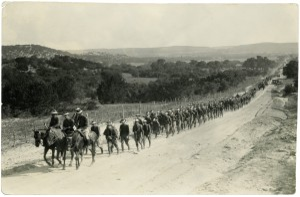Occupy Wall Street’s numbers have swelled to thousands here in New York City, not to mention the Occupy Together Movement across the country. At the October 10th General Assembly meeting–held every evening at 7pm–the kitchen announced that it serves 2000 people free food every day. The Occupied Wall Street Journal is in its second edition, with the first also translated into Spanish.
Category:
Tropic of Chaos: Christian Parenti Interviewed
Ashley DawsonIn this interview, Christian Parenti and Mike Menser discuss issues raised by Parenti’s recently published book Tropic of Chaos: Climate Change and the New Geography of Violence. The Geography of Catastrophic Convergence MM: Kenya, Uganda and East Africa, Afghanistan, Pakistan, … Continue reading “Tropic of Chaos: Christian Parenti Interviewed”
I was a Wall Street zombie
Tavia Nyong'oTechnically, I never worked on Wall Street. But, for a difficult year in my early twenties, I did don a suit at the crack of dawn and schlep down to one bank or another in the financial district or, occasionally, to one of its outposts in Long Island City, Queens, or Stamford, CT. Citibank, Chase Manhattan, American Express, Swiss Bank. I was a perma-temp in a series of glorified secretarial pools, the highest paid work my liberal arts degree could secure me, even in the middle of the Nineties dot com boom.
Is it a Crime? The Transgressive Politics of Hacking in Anonymous
Michael Ralph and Biella Coleman“Ain’t no such thing as halfway crooks…” -Mobb Deep, “Shook Ones,” Infamous Mobb Deep “there are so many different anonymous networks with different terms of use so i keep mixing them up” -Anonymous on Anonymous (#anonops) September 25, 2011 Joseph … Continue reading “Is it a Crime? The Transgressive Politics of Hacking in Anonymous”
Cameras are Weapons for #OccupyWallStreet
Michael MandibergTo note that a camera is a weapon is nothing new. Susan Sontag articulated the relationship between the camera and the semiotic violence that “turns people into objects that can be symbolically possessed.” For Sontag the violence was symbolic, as … Continue reading “Cameras are Weapons for #OccupyWallStreet”
Reparations and the Human
Social Text CollectiveA Lecture by David L. Eng
September 28, Wednesday
6:30 to 8 pm
This presentation explores the relationship between political and psychic genealogies of reparation. Reparation is a key term in political theory, but it is also a central concept in psychoanalysis (specifically object relations theory), yet the two are rarely discussed in relation to one another. In this talk, I will explore how political and psychic genealogies of reparation might supplement one another in theories of the human and discourses of human rights, while helping us to understand better the social and psychic limits of repairing war, violence, colonialism, and genocide.
Saher Shah: Object Anxiety
Social Text CollectiveSaher Shah, whose art is on the cover of Social Text #108, is having a solo exhibition at Scaramouche gallery in New York between now and October 30, 2011. From the gallery:
works, “Object Anxiety” continues the artist’s exploration of
architectural modernism, specifically, new Brutalism’s engineered social
spaces and urban environments.
Click here for more information.
Introduction
Social Text CollectiveThe financial crisis of 2008 and the subsequent “Great Recession” have often been seen as crises of debt and credit. Political economists have attempted to unravel the financial instruments — the subprime mortgages and collateralized debt obligations — at the … Continue reading “Introduction”
Working Lives in Debt
Eli Jelly-SchapiroHow does debt act as a tool of labor discipline? As a catalyst of capitalist accumulation? As a method of labor degradation? I want to approach these questions by imagining a series of three lives, working lives, working lives … Continue reading “Working Lives in Debt”
Environment in Debt
sigma colonEvery winter millions of monarch butterflies migrate from the United States and Canada to forests in central Mexico. The sight of their arrival stops people and traffic not only by virtue of its uniqueness, but also due to the … Continue reading “Environment in Debt”
A Debt Remembered
van truong“Without memory, there is no debt. Put another way: without story, there is no debt.” That’s how Margaret Atwood put it in her book, Payback (2008), in which she foregos the structures of finance in order to explore … Continue reading “A Debt Remembered”
Indemnity for State Murder
monica munoz martinezIn the nineteen-teens, Concepcion García, a Mexican national, lived in Texas to attend school. In April 1919 she became ill, and attempted to return home. That same month Lt. Gulley of the U.S. Cavalry patrolled the U.S.-Mexico border. While crossing … Continue reading “Indemnity for State Murder”
Negotiating Intellectual Debt
hong liangThe establishment of Chinese sociology was transnational from the very beginning. During the early decades of the twentieth century, Europe and Japan were two major sources of Chinese sociological knowledge, but starting from the 1920s, Chinese sociology developed a … Continue reading “Negotiating Intellectual Debt”
Dreamworlds of Debt
amina el-annanThe German philosopher Ernst Bloch in his massive tome The Spirit of Utopia, devoted an entire section to what he called ” Little Daydreams”. Overflowing each page are mystical and impressionistic descriptions of phenomena like wishful thinking, social utopias, … Continue reading “Dreamworlds of Debt”
The Banking Model of Education
andrew hannonTwo thirds of American College graduates graduate in debt. Traditionally, student debt, like a home mortgage, was thought of as “good” debt, a wise investment in the future. The current financial crisis has disrupted that common sense, and … Continue reading “The Banking Model of Education”





